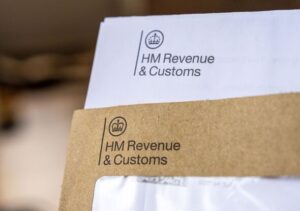
The State Pension is set to rise by £400 a year from April 1 2025 under the “triple lock” regime designed to protect the income of millions of retired Britons.
The figure is based on Treasury documents given to the BBC in what appears an effort to cool the backlash over the controversial decision to axe the Winter Fuel Payment, worth up to £300, from millions of pensioners.
The triple lock mechanism guarantees that the state pension will rise each year by whatever number is highest out of inflation, average wage increase, or 2.5 percent.
The highest of these benchmarks for the 2025-26 financial year is likely to be the wage increase figure of around 4 percent with the benchmark due to be announced on Tuesday of next week.
A rise of around £400 would take the annual value of the new state pension to around £12,000, while the older basic state pension would go up by £300 to around £9,000.
The extra £400 will be a welcome boost to pensioners, however the rise would be less than previous predictions over the summer which suggested it would be a higher £600 based on average wage rises at that time.
Rachel Reeves defended the cut to the Winter Fuel Payment this week by pointing out that the State Pension rose by £900 in April this year and would go up again in April 2025 under the triple lock regime which will be maintained throughout this Parliament.
She also argued that while energy tariffs have recently gone up by 10 per cent, they will still be below the figure charged last winter.
Speaking in the House of Commons, she said: “The basic state pension is worth £900 more than it was a year ago and will go up again in April next year because of the triple lock, which we have committed to for the duration of this Parliament.”
A rise in the state pension to £12,000 means an increasing number of elderly people will be dragged into paying tax even if they have a relatively small income from other sources such as a private pension. This is because the threshold before people start paying tax has been frozen at £12,570 and will remain at this figure through to 2027-28 under plans drawn up by the Conservatives, which have been adopted by Labour.
Helen Morrissey, head of retirement analysis at Hargreaves Lansdown, said the predicted rise in the state pension “will be welcomed by pensioners still emerging from the cost-of-living crisis”.
But she warned: “With many still reeling from the news that their winter fuel payment is to be taken away, it won’t be quite the boost that many hoped for.”
She added: “There’s another looming challenge – frozen tax thresholds mean that the full new state pension is creeping ever closer to tax paying territory and a similar rise next year could see it surpass it.
“With these freezes in place until 2028, there’s every chance, we could see pensioners solely reliant on the state pension finding part of it is making its way to the taxman.”
Lily Megson, Policy Director at My Pension Expert said: “The government’s renewed commitment to the triple lock coupled with the Treasury’s expectation of an above-inflation increase will provide some relief to pensioners. While debates about its affordability will likely rage on, the triple lock has been essential in protecting retirees’ incomes, ensuring their state pensions keep pace with inflation or earnings – crucial given the soaring cost of living over the last few years.
“But while the increase is welcome, it’s important to remember that many pensioners will still face significant financial challenges. The recent decision to cut the winter fuel payment for most households will be a major concern for many older people at a time when energy prices remain high. Simply put, the triple lock alone won’t address all the UK’s pension challenges.
“Instead, it’s crucial that the government takes additional steps to improve financial literacy among savers. By collaborating with the financial services sector, they can ensure accessible financial education and advice, empowering people to take control of their financial futures.”
















